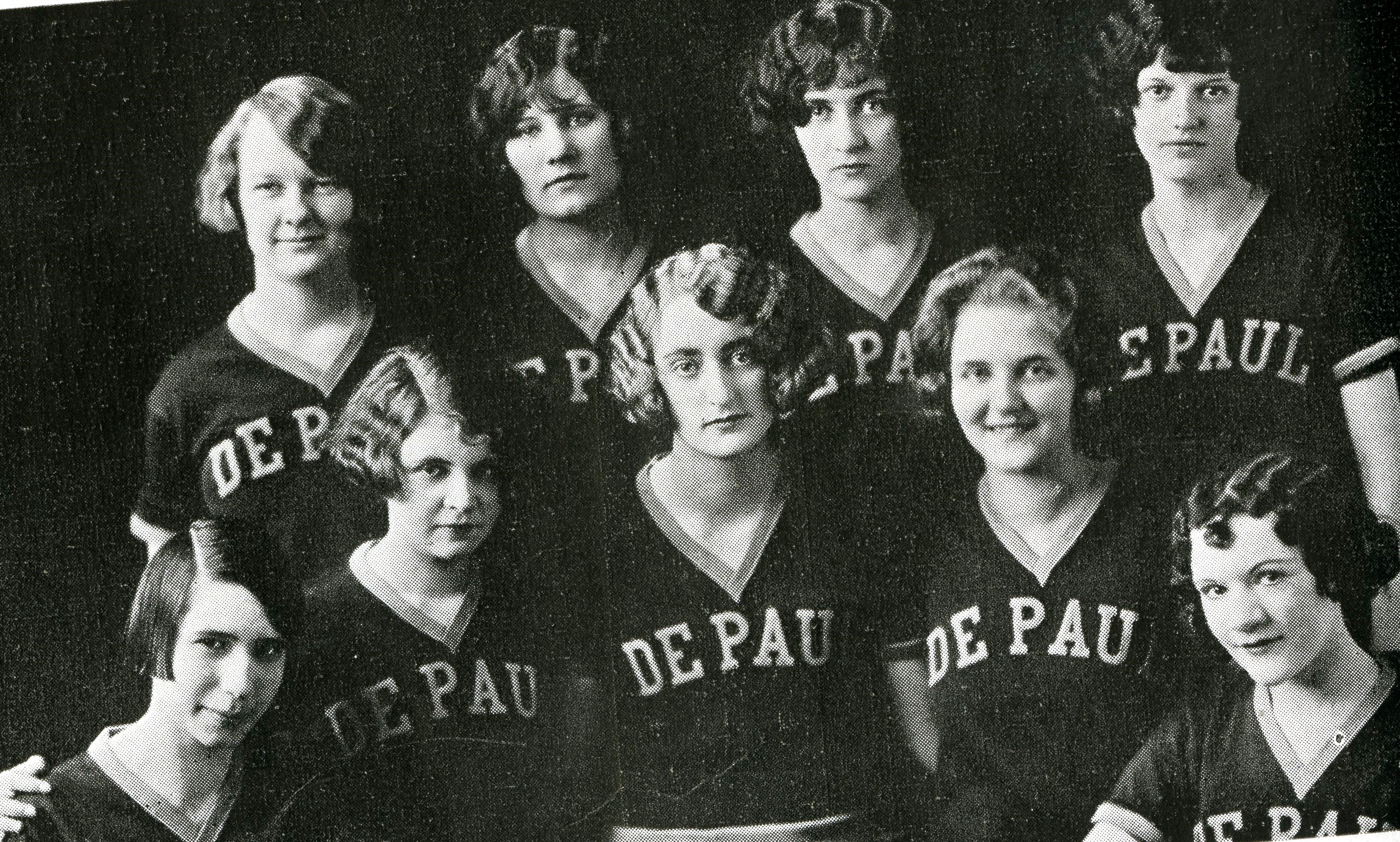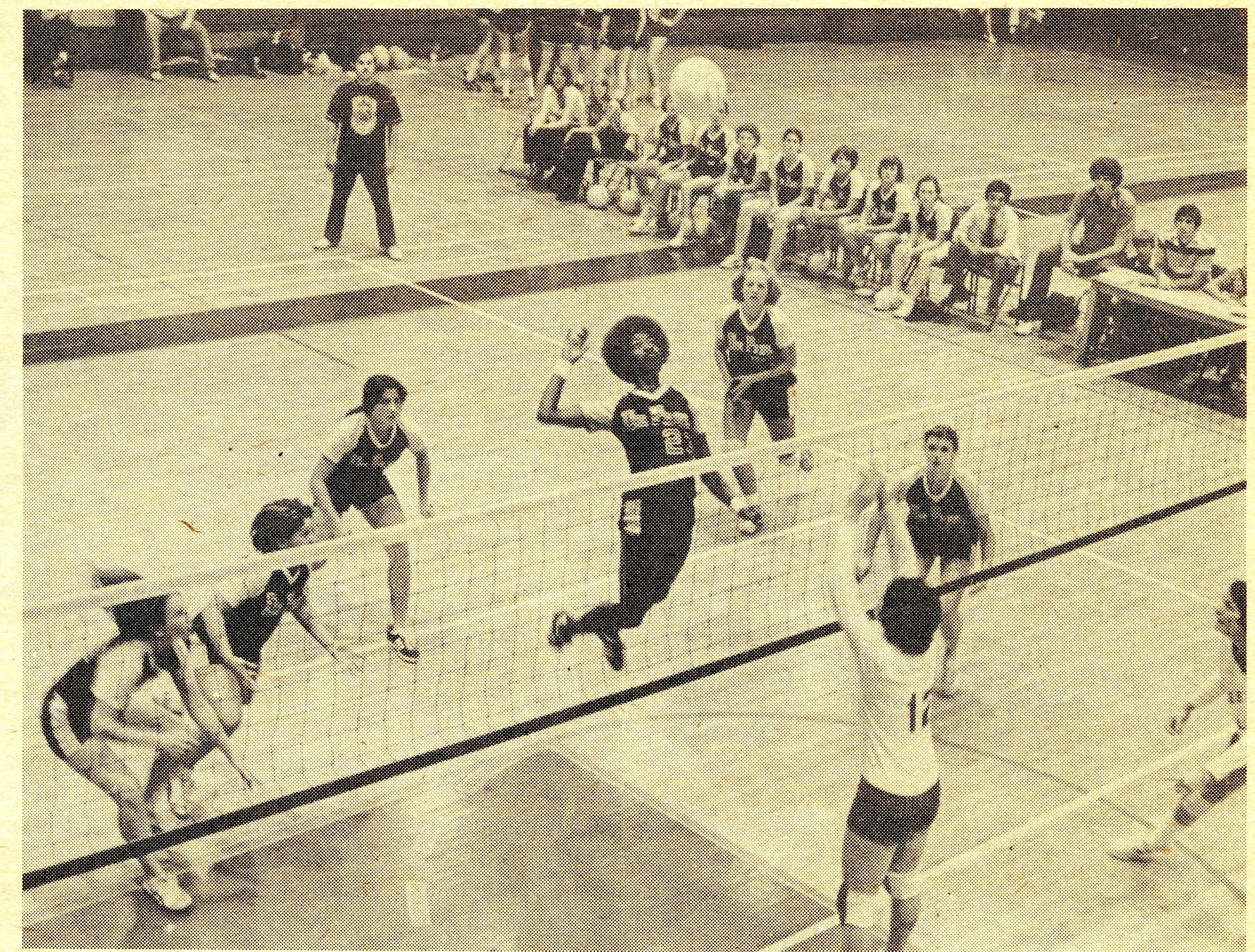 The university's first co-ed varsity team, the DePaulian, in 1925. (Image courtesy of Special Collections and Archives)
The university's first co-ed varsity team, the DePaulian, in 1925. (Image courtesy of Special Collections and Archives)March is Women's History Month; a time to honor the contributions of women everywhere and remember collective struggles towards gender equity and inclusion. This March holds particular significance as 2022 marks the 50th anniversary of Title IX.
Established in 1972, Title IX was the first legislation to protect female student athletes. Prior to this historic legislation, women were often excluded from or had only limited access to educational programs. This access extended to the world of sports, as women and girls who were excluded from schools on the basis of gender experienced a similar inability to access extracurricular programs, including sports teams and athletic clubs. Even when women were able to participate in educational programs, discrimination based on sex and sexual harassment from educational staff and fellow students were not uncommon.
While some institutions, including DePaul, highlighted women in sports long before official legislation, Title IX provided specific guidelines that offered equitable access to resources and safety across federally funded institutions.
Since 1925, female student athletes have found space at DePaul. Budding from a “co-ed varsity" basketball team, the options for women's involvement in sports at DePaul quickly expanded. Beginning in 1927, DePaul student athletes could engage in athletic opportunities for women through the Women's Athletic Association. The association aimed “to assist in the arrangement of schedules for the activities of the various departments and to encourage further participation in athletics among DePaul's women students." While the association provided an entry point for many students, it did so with limited institutional support. At times there were multiple coaches to support various sports clubs and intramurals, but at other times the weight of facilitation and coaching was placed on a current student.
One such student was Joanne McGrath. A freshman of the physical education program in 1953, she was an original member of the intramural tennis team. The following year she became the Women's Intramural Program Director. This position gave McGrath the opportunity to foster interest and facilitate student participation while dealing with the downsides of working in women's athletics without the backing of an Athletic Department.
Throughout her time as director, McGrath used “The DePaulia" to publicize intramurals and the cost of engagement. In one such ad, a section writer shared the vison of students committed to women's athletics.
“Using this as a foundation we should build a sports structure comparable to that of any other co-educational school," the writer noted. Faculty like Jean Nordberg became vital to realizing this vison.
Long before Title IX, Nordberg was a physical education teacher. In addition to full-time teaching duties, she tirelessly supervised and coached more than seven teams without funding or additional pay. Throughout her employment at DePaul, Nordberg also engaged in pivotal initiatives and committees working towards gender equity and was a moderator of the Women's Athletic Association. In 1974, two years after Title IX was passed, the Women's Athletic Association became a part of the larger Athletics Department and received university funding. During this transition, Nordberg assisted in drafting recommendations and continued to advocate for greater resource equity.
These recommendations and other contributions fostered sustainable changes at DePaul. Countless students have since been supported in achieving success due to the generous selfless spirit of the women who came before them.
 Lillie Goesman (center) prepares to spike the ball in an October 1977 volleyball match. (Image courtesy of Special Collections and Archives)
Lillie Goesman (center) prepares to spike the ball in an October 1977 volleyball match. (Image courtesy of Special Collections and Archives)One example is Lillie Goesman, a nontraditional student who juggled a P.E. degree, outside job and family life with two kids. She became the backbone of the women's volleyball team, some even called her the foundation of her team's success. Her skill and passion for the game, in conjunction with enhanced institutional support, led to exciting victories and team stability. Goesman was inducted into DePaul's Hall of fame in 1996.
Andrea Morgen, an elementary education student, was the first player from the south to sign with the women's basketball team. In addition to playing all four years, Morgen became captain of the 1987-88 National Invitational Tournament Championship team and was named All-WNIT in 1988. Upon graduation, Morgen became one of the first Black female student-athletes to later hold a coaching position on campus.
Title IX was integral to uplifting the visibility of female identifying athletes at DePaul and offered a tangible framework for institutional accountability, gender equity and inclusion. Reflecting on the experiences of women at DePaul creates space to reckon with our institutional past and to remember the work of gender equity and advancement.